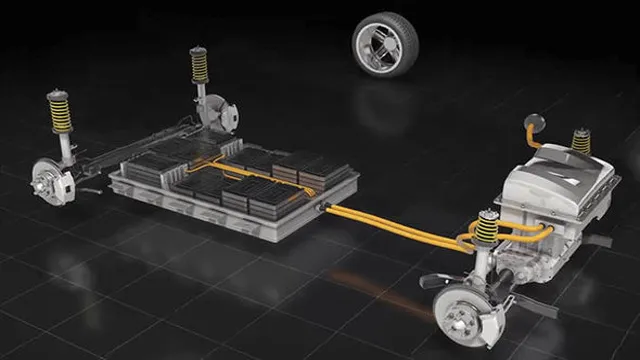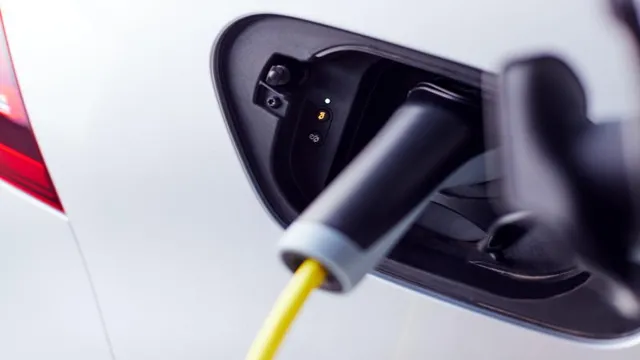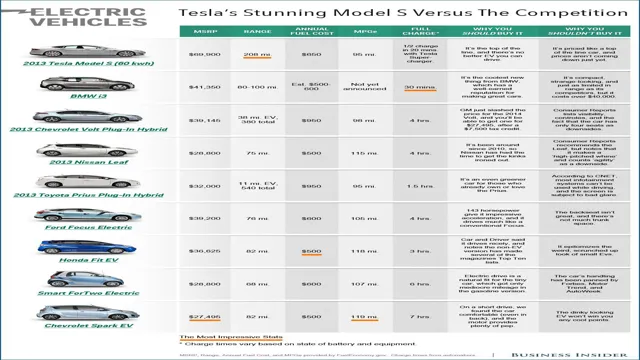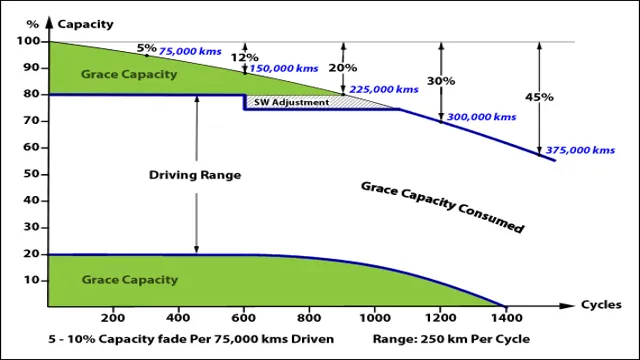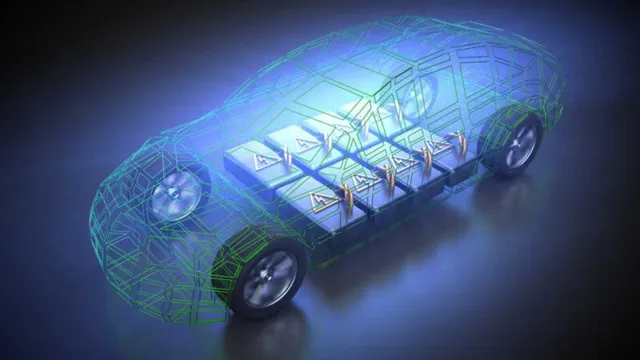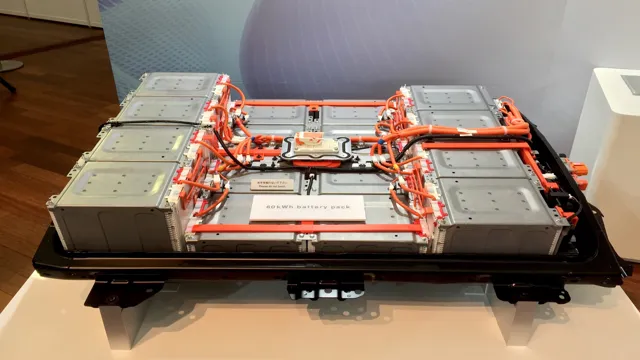Revolutionizing the Road: Unveiling the Latest Electric Car Battery Technology
Electric vehicles (EVs) are becoming increasingly popular these days, as people become more aware of their impact on the environment. But there is still one major challenge that EVs face – battery technology. Traditional lithium-ion batteries have limitations when it comes to power and capacity, and they can be expensive to produce.
However, a new battery technology that is set to revolutionize EVs is on the horizon. This new technology promises to be more powerful, longer-lasting, and cheaper than traditional lithium-ion batteries. Engineers and scientists are currently testing prototypes, and the results are promising.
If this technology is successful, it will not only make EVs more affordable but also more practical for long-distance travel. Imagine being able to drive your EV for days without having to stop for a recharge, or being able to charge your car quickly and easily, just like filling up a gas tank. This new battery technology could make that a reality.
It could transform the EV industry, making it even more competitive with gasoline-powered cars. The potential of this new battery technology is exciting, and it’s still in the early stages of development. But as more research is conducted, we may soon see a revolution in the EV industry.
With this technology, we could see a future where EVs are not just an eco-friendly choice, but also a practical one for all types of drivers.
Current State of EV Batteries
Electric car battery technology has made significant advances in recent years, resulting in greater efficiency, longer ranges, and faster charging times. Lithium-ion batteries are currently the most widely used type of battery in electric vehicles due to their high energy density, low weight, and relatively low cost. However, researchers are constantly exploring new materials and designs to further improve battery performance and reduce costs.
Solid-state batteries, for example, have the potential to offer even greater energy density and safety than traditional batteries while also reducing costs in the long run. At the same time, other promising technologies like lithium-sulfur and lithium-air batteries are still in the experimental stages, but could potentially offer even more significant improvements in performance. As the demand for EVs grows, investment in this critical technology will surely continue to intensify, paving the way for even more innovative energy solutions in the near future.
Range Anxiety: Cause and Effect
One of the biggest concerns for electric vehicle (EV) owners is range anxiety – the fear of not having enough battery power to reach their destination. In the past, a limited range was a major issue for EVs, but the current state of EV batteries has improved significantly. With advancements in technology, the range of EVs has increased to an average of 250 miles or more on a single charge, depending on the model.
Additionally, the availability of charging stations has also increased, making it easier for EV owners to charge their vehicles on the go. While range anxiety may still be a concern for some, the current state of EV batteries and charging infrastructure has eased many of these worries.
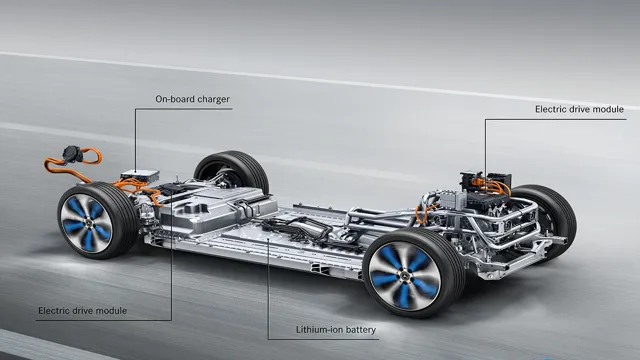
Performance and Battery Lifespan Issues
The current state of EV batteries is constantly evolving and improving. However, with the increase in performance, there is a concern for battery lifespan and degradation. To combat this issue, manufacturers are developing new battery chemistries and designs that prioritize both performance and longevity.
One example is using solid-state batteries instead of traditional lithium-ion batteries, which can potentially increase range and lifespan. Additionally, battery management systems are becoming more advanced, allowing for more accurate monitoring of battery health and optimizing charging and discharging cycles. It is important for EV owners to also take care of their batteries by avoiding extreme temperatures and using the appropriate charging equipment.
All of these efforts are aimed at providing a better overall driving experience and reducing the environmental impact of transportation.
Introducing New Electric Car Battery Technology
Electric car battery new technology There’s a lot of buzz around the latest electric car battery technology that promises faster charging times and longer ranges. Traditional lithium-ion batteries have limitations on how much energy they can store and how quickly they can be charged. However, new advancements in solid-state batteries are set to revolutionize the industry.
Unlike traditional batteries, solid-state batteries have solid electrolytes which provide greater energy density, faster charging times, and improved safety. Plus, they are more efficient and environmentally friendly than their liquid electrolyte counterparts. With this new technology, electric cars could have extended ranges of up to 500 miles on a single charge and charge in the time it takes to fill up at the pump.
So, in the future, we could be looking at a world where electric cars are just as convenient and practical as gas-powered vehicles, without any of the harmful emissions.
Solid-state vs. Lithium-ion Batteries
As electric vehicles (EVs) become more prevalent, the need for better battery technology continues to grow. Solid-state batteries have been touted as an alternative to current lithium-ion batteries, offering higher energy densities and quicker charging times. Recently, a new type of solid-state battery has been developed that uses a polymer electrolyte instead of a liquid electrolyte.
This new technology promises to provide even greater energy densities, quicker charging times, and longer lifespans. The main advantage of solid-state batteries is that they do not use liquid electrolytes, which can be flammable and pose safety risks. They also offer the potential for increased range and lower costs for EVs, making them an exciting new development in the world of electric vehicle technology.
However, this new technology is still in the early stages of development and will require significant testing and investment before it can become widely available.
Advantages of Solid-state Batteries
Solid-state batteries offer several advantages over traditional lithium-ion batteries, making them an exciting new development for the electric vehicle industry. One major advantage is that they have a higher energy density, which means that they can store more energy in a smaller space, leading to longer ranges for electric cars. Additionally, they are safer, as they are less likely to catch fire or explode.
They also have a longer lifespan, lasting up to 10 years or longer. However, there are still some challenges to overcome, such as the cost of production and the need for further research and development. Nonetheless, as the demand for electric vehicles continues to grow, solid-state batteries are sure to play an increasingly important role in the future of clean transportation.
Challenges and Limitations of Solid-state Batteries
Solid-state batteries are the latest technology to hit the electric car battery market. Unlike traditional lithium-ion batteries, which use liquid electrolytes, these batteries utilize a solid electrolyte. This innovation has the potential to offer higher energy density, faster charging, and lower risk of thermal runaway events.
However, implementing solid-state batteries presents a few challenges and limitations. One of the main obstacles is the manufacturing process, which requires intricate and precise construction processes. Additionally, the performance of solid-state batteries may not be consistent across all temperature ranges, which could lead to reduced efficiency in colder climates.
Despite these challenges, solid-state batteries are a promising technology that could lead to significant advancements in the electric car industry. As researchers continue to work on improving their performance and affordability, we may see more of these batteries powering our electric cars in the not-too-distant future.
Implications for EV Industry and Society
The introduction of new electric car battery technology is not only exciting for the automobile industry but also beneficial for society as a whole. With advancements in technology, electric cars are becoming more affordable, efficient, and environmentally friendly, making them a popular choice among potential car buyers. The development of advanced batteries that can hold more charge, higher energy density, and faster charging times can revolutionize the industry, making electric cars more practical for daily use.
The new technology can potentially eliminate range anxiety, making electric cars more desirable and convenient for long-distance travel. Additionally, the increase in demand for electric vehicles could lead to a reduction in carbon emissions and air pollution, contributing positively towards combating climate change. As the world becomes more conscious of environmental preservation, the evolution of electric car battery technology is sure to play a crucial role in tackling the challenges associated with global warming.
Disrupting Fossil Fuel Dominance and Carbon Emissions
The shift towards electric vehicles (EVs) has the potential to disrupt the dominance of fossil fuels and significantly reduce carbon emissions. As the world becomes more conscious of the environmental impact of traditional modes of transportation, governments and corporations are increasing their investments in EV technology. The implications of this transition are vast, as it not only affects the automotive industry but also the energy sector.
The growing demand for EVs has spurred the development of renewable energy sources such as solar and wind power, which are necessary to fuel these vehicles sustainably. Furthermore, the adoption of EVs can significantly reduce carbon emissions, thereby contributing to global efforts to mitigate climate change. With the benefits of EVs becoming increasingly apparent, it is clear that a shift towards electric transport is essential for human progress.
Accelerating EV Adoption and Infrastructure
The accelerating adoption of electric vehicles (EVs) and the necessary infrastructure involves a significant shift in the transportation industry. The implications for the EV industry and society as a whole are immense. From reducing carbon emissions to improving air quality, EVs provide a more sustainable and environmentally friendly solution for transportation.
However, the widespread adoption of EVs is heavily dependent on the development of adequate charging infrastructure. Governments and private companies are investing heavily in charging station networks to address range anxiety and make EV ownership more convenient. In addition to charging infrastructure, the development of more efficient batteries is critical to overcoming hurdles such as high cost and low range.
As technology continues to advance, EVs will become more accessible to a wider demographic. The adoption of EVs can have a profound effect on society, leading to a reduction in air pollution and a more sustainable future for generations to come.
Future Outlook and Potential Innovations
The future outlook for electric car batteries looks bright with new technology being developed. One of the most promising innovations is the use of solid-state batteries, which use a solid electrolyte instead of a liquid one. This allows for higher energy density and faster charging times, making electric cars more practical and efficient.
Another area of research is the use of lithium-sulfur batteries, which have the potential to store five times as much energy as traditional lithium-ion batteries. Additionally, some car manufacturers are experimenting with using solar panels on the roofs of electric cars to help charge the battery and extend its range. These new technologies are still in the developmental phase, but they hold promise for a more sustainable future of transportation.
With the push towards renewable energy and a decrease in reliance on fossil fuels, it’s becoming increasingly important to invest in research and development of new electric car battery technology.
Conclusion
As we bid farewell to the days of gas-guzzling pollution machines, the electric car battery new technology marks a huge step forward in the evolution of transportation. With longer range, faster charging, and more sustainable materials, the electric car battery is proving to be a powerful force in the fight against climate change. It’s now up to us to charge ahead and embrace this technology with open arms (and maybe a fist pump or two) as we pave the way for the greener, cleaner, and brighter future of mobility.
“
FAQs
How does the new electric car battery technology work?
The new electric car battery technology uses advanced materials and chemistry to improve the performance, energy storage, and charging speed of batteries, allowing for longer and more efficient use of electric vehicles.
What are the advantages of the new electric car battery technology?
The new electric car battery technology offers several advantages, including faster charging times, longer range, better performance, and lower cost per mile compared to traditional car batteries.
How long does the new electric car battery last?
The lifespan of the new electric car battery depends on various factors such as usage, maintenance, and temperature. However, it is expected to last longer than the older battery technology, up to 10 or more years.
How is the new electric car battery technology impacting the environment?
The new electric car battery technology is significantly reducing greenhouse gas emissions, as electric cars are more environmentally friendly than traditional gas-powered vehicles. Additionally, the new battery technology is recyclable and less harmful to the environment than older battery technology.

